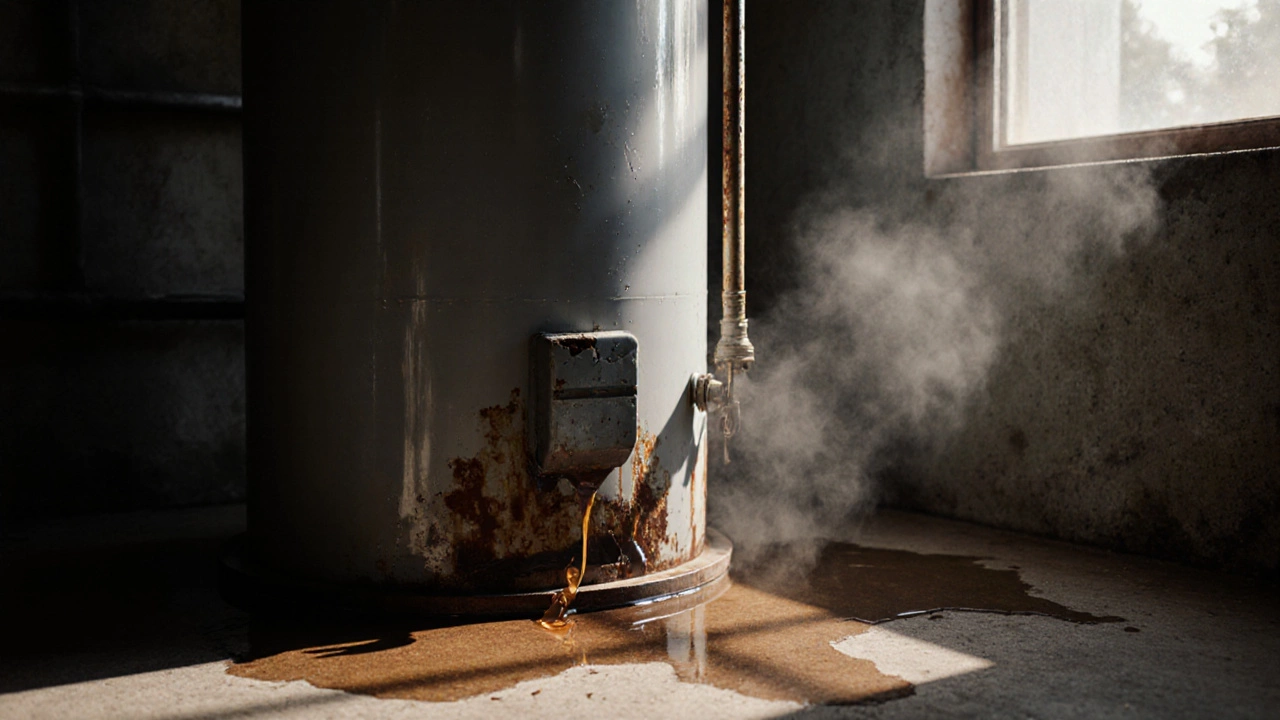
Learn the real signs your hot water heater is failing-rusty water, strange noises, low hot water, leaks, and age. Don't wait until it breaks. Get ahead of failure with practical advice for New Zealand homes.
When your hot water heater, a home appliance that heats and stores water for showers, sinks, and laundry. Also known as a water heater tank, it's one of the most taken-for-granted systems in your house—until it stops working. There’s no warning. One morning, the shower goes cold, and suddenly you’re dealing with a full-blown crisis. Hot water heater failure isn’t rare—it happens to nearly half of all homes by the time the unit hits 10 years old. And while some failures are sudden, most come with quiet signs you might miss if you’re not looking.
The biggest culprits? sediment buildup, mineral deposits that settle at the bottom of the tank and cause overheating and corrosion, faulty heating elements, the electric coils that actually heat the water, which burn out over time, and tank leaks, often from rust eating through the metal lining. These aren’t guesswork issues—they’re predictable. A 12-year-old water heater that’s never been flushed? It’s playing Russian roulette with your plumbing. Even if it’s still working, it’s running on borrowed time. And when it fails, it doesn’t just stop—it can flood your basement or laundry room.
Here’s the thing: most people wait too long to act. They ignore the rumbling noises, the rusty water, the slow recovery time after a shower. Then, when the tank gives out, they panic and call for an emergency replacement. But you don’t have to. Many hot water heater failures can be delayed—or even avoided—with simple maintenance. Flushing the tank once a year cuts sediment by 80%. Testing the pressure relief valve takes five minutes and can prevent an explosion. Replacing a broken heating element costs less than $100 and often brings an old heater back to life. But if your unit is over 12 years old and showing multiple signs of trouble, repair isn’t just a waste of money—it’s a risk.
That’s why the posts below focus on real, practical fixes and honest advice. You’ll find guides on diagnosing a failing water heater, checking your thermostat, testing elements with a multimeter, and deciding when to walk away from repair. We cover what causes leaks, why your water turns brown, and how to spot a tank that’s about to burst. You’ll also see comparisons between electric and gas models, what to expect in repair costs, and why some fixes just aren’t worth it. No fluff. No upsells. Just what actually works in homes around South Shields.

Learn the real signs your hot water heater is failing-rusty water, strange noises, low hot water, leaks, and age. Don't wait until it breaks. Get ahead of failure with practical advice for New Zealand homes.